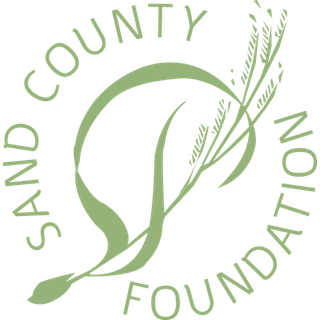Every decision Norah Lake makes at Sweetland Farm is done with careful consideration of how it impacts the productivity of her business and the landscape. That’s why she calls it a “thinking farm.”
Norah is on a mission to sustainably feed her community by choosing the conservation practices that make the most sense across 210 acres of orchards, forests, pastures, vegetable and hay fields.
Norah’s strong land ethic was instilled in her by working alongside her nature-loving parents. As an environmental studies and sustainability student at Dartmouth College she helped start a Community Supported Agriculture (CSA) program for the school farm. She gained five years of experience in farm management before purchasing Sweetland Farm from the Vermont Land Trust with husband Chris in 2012.
Norah spent the next decade converting portions of the farm: transitioning steep hills to forestland, expanding riparian buffers, restoring wetlands, strategically establishing wildlife corridors, reclaiming a gravel pit, and cleaning up an old farm dump. What was once an overgrown thicket of invasive species was replaced with more than 10,000 Elm, Chestnut, Ash, and Hemlock trees.
Her soil health plan involves extensive use of cover cropping, and rotating livestock across pastures and vegetable fields. To protect water quality and prevent erosion, she eliminated livestock crossings of streams. Extensive wildlife corridors were considered in the thoughtful layout of all pasture fencing and vegetable fields, the largest of which is just three acres.
Watch their conservation success story
Despite the presence of streams, ponds were built to supply water for Sweetland Farm’s drip and micro-sprinkler irrigation systems. This protects trout by eliminating the need to draw water from streams during times of low flow.
In addition to nesting boxes for bats, songbirds, raptors, and ducks, more than eight acres of riparian trees and shrubs were planted for wildlife in 2024-25. Sweetland Farm also protects areas where threatened wood turtles and orchids have been identified.
Norah pledged to reduce the farm’s fossil carbon emissions by 90 percent over a decade. Now in the seventh year, she has realized a 73 percent drop. In addition to solar arrays, a greenhouse runs on biomass-based heat and old equipment was replaced with super-efficient refrigeration.
To grow healthy vegetables without the use of pesticides, Norah takes a “beyond organic” approach. This allows her to reject certain aspects of certified organic production she disagrees with, like the use of non-biodegradable plastic mulches in fields. Woodchips are spread under fruit trees to minimize erosion and prevent the need for hazardous trunk borer sprays by eliminating borer habitat.
Sweetland Farm is known for its large farm store and 45-member CSA. In recognition of her own capacity, Norah divided her growing business into five enterprises, each with its own manager who can give that part of the farm the attention it needs to thrive. She has also placed conservation easements on her land that permanently protect its resources and include provisions to ensure affordability to farmers in perpetuity.
It's Norah’s mix of big-picture thinking and attention to detail that has nearly allowed her to cross another item off the farm’s to-do list; more than 99 percent of the invasive species have been eradicated.
Sweetland Farm is a conservation ethic at work. Its owner’s thoughtful approach to farming is a refreshing look at how to work with a landscape rather than against it.




